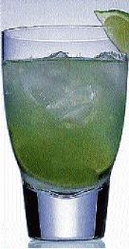Rum money running out - EU programme to end despite rum-makers plea
Published: Wednesday | September 2, 2009

The European Union (EU) is sticking to its guns that the integrated rum programme, which funds the modernisation of the rum producing plants in Cariforum countries and prepares regional producers for full liberalisation of the EU rum market, will not be extended after the planned end date of June 2010.
This is despite continuing lobby efforts by the West Indies Rum and Spirits Association (WIRSPA) for the seven-year-old programme to be rolled over.
The programme is financed by the EU with €70 million, and matched by Cariforum rum producers with €65 million.
An official extension request from the regional rum producers was submitted to the EU last month, but the EU office in Jamaica said the Europeans have already told the rum makers, no.
"The programme was alre-ady
The EU said its decision was communicated to WIRSPA in July.
"The EU has in fact received an official request for an extension of the programme and the issue was formally discussed at the recent EC-Cariforum Dialogue held on the 18th of July in Antigua," said the EU.
Implementation
But while turning down the request of the Caribbean rum sector, the Europeans are urging that every effort be made to utilise before June next year, money still remaining in the programme.
The EU said it would, "look at all the possibilities for accelerating the ongoing work implementation during the remaining life of the
It is also pointing to another source of EU funding which rum makers should explore.
"There are substantial funds available to the region under the European Development Funds 10th Regional Programme. The rum industry could ask Cariforum, as the European Commission's Regional
The EU has added that so far, money disbursed under the facility has been well spent.
"A recent evaluation carried out on the programme found that it was relevant to the needs of the rum industry and was well managed," the EU has said.
Imminent wrap-up
Meanwhile, it disagrees with WIRSPA's claims that its efforts under the 'Authentic Caribbean Rum Marque' initiative, to build a distinctly Caribbean rum brand based on a high-quality product, is being jeopardised by the imminent wrap-up of the EU financing.
"Registration of the marque has been completed in over 40 countries and in the
In May this year, the EU reported that Jamaica has so far received over €8.5 million or more than J$1 billion from the project, and was one of its largest beneficiaries.
At the height of its lobby effort in June, WIRSPA said a total 54 projects worth €21 million (J$2.6 billion) had been undertaken in Jamaica up to then.
A bulk rum handling and ageing facility at J Wray and Nephew in Kingston was among the latest projects funded.
National Rums of Jamaica also said in August it was finalising financing under the programme for the US$12 million distillery upgrade of subsidiary Clarendon Distillery Limited.
In June WIRSPA chairman, Dr Frank Ward said €105 million worth of investment projects had been approved and were in various stages of implementation in 23 countries. Of that amount, WIRSPA said, only €44 million was in the form of EU grants.
The association has expressed the view that 17 modernisation, waste treatment and energy projects would be cut short, were the programme ongoing since 2002 not extended by a requested 18 months, resulting in about €4 million of rum funding being lost to the region.
Global competition
The EU has signalled that it is satisfied that the programme achieved its objective of readying the Caribbean rum makers within the African, Caribbean and Pacific grouping (ACP) for full global competition.
"The Economic Partnership Agreement signed between the European Union and CARIFORUM in 2008 gives free access for ACP exports to European markets. This should mean that
huntley.medley@gleanerjm.com





















